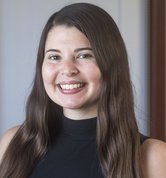Rick Kriseman criticized the city's police leadership during his mayoral primary campaign, but he inherited an immediate chance to change the department when the former chief left the job.
Former Chief Chuck Harmon had announced in September 2013 he would retire after 12 years on the job, taking effect soon after Kriseman was sworn in. (Harmon would have had to retire by May 2015 because of the state's deferred retirement program anyway, but the timing so soon after the mayoral primary raised eyebrows.) That left the rookie mayor to find a new top cop when Harmon left the job in January 2014.
After months of searching and interviews with four prospective candidates, Kriseman suddenly turned to Clearwater Police Chief Anthony Holloway.
"Though Holloway was not an applicant for St. Petersburg police chief or one of our finalists, I sought him out because I strongly believe he is the perfect leader for this moment in time," Kriseman wrote in the Tampa Bay Times in July 2014. "I am confident in his ability to transform our department and to lead our force with integrity and moral authority. I am especially excited to witness his leadership in the areas of community-oriented and data-driven policing."
City Council members were unsure of Kriseman's choice. Clearwater Mayor George Cretekos was clearly dismayed. Police union head Mark Marland said Kriseman had made a mockery of what was supposed to be a transparent selection process.
But those fears have been allayed, because the new chief is now popular among those same critics. (Well, Clearwater's Cretekos is probably still unhappy about it.)
Holloway, who started his career as a police officer three decades ago, has made several moves to implement his community policing philosophy, which he had used in Clearwater as chief. He has encouraged officers to leave their cruisers and talk to residents, building relationships with the people the police are serving.
The department started a new Park, Walk and Talk program in September. The initiative is designed to get officers into neighborhoods to discuss issues and keep people from being afraid of the police. All uniformed officers must walk a patrol area at least an hour a week and log their time. Even Holloway has to log his walking time.
The police also have a new website, a smartphone app and a data-driven crime analysis unit called LEADS, which also monitors an anonymous crime tip service called Tip411. Holloway has called the move "good for intelligence-led policing" but stressed the importance of following up and talking to residents.
Officers also have started setting up shop in problem neighborhoods to show residents they are committed to serving communities. A command bus was parked near Freemont Terrace South and 28th Street South for a week in November 2014 following a drug bust to address resident complaints. The mobile base was set up to give the people in the neighborhood a very visible contact point to let police know what was going on.
It's a slightly different approach than the community policing philosophy used in St. Petersburg for 15 years starting in the 1990s. More than 40 officers were each committed to a particular neighborhood until 2006, when Harmon disbanded the system amid complaints certain residents were being favored and some cops were working harder than others.
The department will be hiring 100 new officers to replace retirees or police almost ready to retire. Last year Holloway hired Hillsborough County Sheriff Col. James Previtera to replace retiring Assistant Chief David DeKay as head of the Investigative Services Bureau.
Holloway is focused on other changes, as well. He has moved school resource officers into the uniformed division, to signify those officers should be out on the street when school is out. He also has changed the department's traditional green uniforms to dark blue to increase night safety and convey authority.
"We are a paramilitary organization so no matter what we have on, we're going to look like someone in a uniform," Holloway said in a statement. "It doesn't change who we are, it doesn't change our DNA, because we are still going to be involved a lot in community policing."
Kriseman said he wanted a return to community policing in St. Petersburg, and he went to some lengths to get it. He scrapped an organized candidate search for a new police chief to hire Holloway, who began making changes to adopt that philosophy as soon as he took over.
Holloway has been in charge for less than a year, so it's a little early to say community policing has fully taken hold. But there are definite changes in the department, so we rate this promise In The Works.

